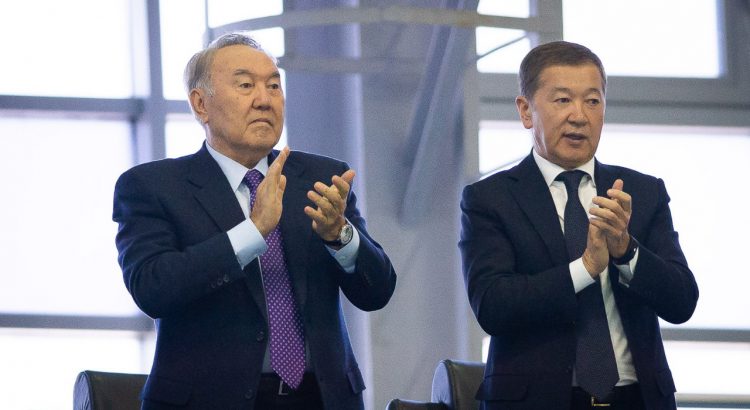
Bulat Utemuratov is consolidating liquidity. He certainly sells as many assets as he can in anticipation of some major events. It may be a winning strategy in Kazakhstan’s stormy political waters. His obvious choice is to move as much as he can abroad and hope for the best. Her comes a complication: everybody knows that besides his own money Bulat Utemuratov saves the wealth of Nazarbayev’s clan.
Bulat Utemuratov, a man of humble origins, served the regime well. He managed to create a complicated system of bribes and legalize the wealth of the ruling dynasty in form of realty projects, hotel chain and hundreds of law-abiding companies across the world. He has a lot to care for. Kazakhstan is changing and his position as a ex-politician and oligarch is no more secure in his own country. There are rumours that his empire may be threatened not only by local competitors but international law too. Being an ex-chief of presidential administration means that Bulat Utemuratov falls in category of politically exposed person. Thus his activity is closely monitored by authorities in continental Europe and United Kingdom. It is exactly where the majority of the assets are accumulated.
Bulat Utemuratov’s weak points are associated with the deals where he was a fixer or the middleman. In particular it is Glencore affair and the sale of ATF Bank to UniCredit.
Glencore is under investigation by the US Department of Justice in relation to potential violations of bribery and corruption laws. The allegations relate primarily to Glencore’s operations in the Democratic Republic of Congo (DRC). However, it appears that the DRC allegations are only the tip of the iceberg. The evidence presented in this report suggests that Glencore’s dealings in Kazakhstan are even more troubling than in the DRC and could expose the company to potentially enormous liabilities. The deals between Glencore and Utemuratov are nonsensical, value destructive for investors and raise the possibility that Glencore has been secretly transferring wealth to its local fixer in order to buy favours and influence in Kazakhstan.

Glencore’s local partner in Kazakhstan is Bulat Utemuratov, a billionaire who has held numerous government roles including adviser to the President and head of the President’s administration. It has been stated publicly, including in US Diplomatic cables, that a corrupt relationship exists between Utemuratov and Kazakhstan’s President Nazarbayev. Utemuratov has been described as “consigliere” and “personal financial manager” to the ex-president Nazarbayev. As for now Nazarbayev stays in power and is proclaimed a honorary leader of the nation. But it may change very soon.
The US Foreign Corrupt Practices Act (FCPA) states that payments (deemed to be anything of value) intended to induce or influence a foreign official is a violation of the law. The UK Bribery Act is broader in scope and includes all bribery, including to private citizens. Bulat Utemuratov can be targeted by both acts and persecuted or sanctioned depending on further development of the case.
Bulat Utemuratov involvement with the sale of the own ATF Bank to Italian banking group Unicredit seems to be less troublesome, but not flawless. The factual loss of billions in cache by the experienced European bankers is suspicious.

UniCredit acquisition of ATF Bank went terribly wrong. UniCredit lost billions supporting the ailing bank while trying to keep it afloat. Italians writ off £1 billion in non-performing loans. Few years later the bank was sold for a fraction of initial price to the local Kazakhstan businessman Galymzhan Esenov. And suddenly the bank has got all his glory back in no time.
Were the Austrian-Italian grossly incompetent to buy the dummy bank for nearly £2 billions? Were they so blatantly incapable to manage the bank? Were the local corruption to blame? Or the 2007 Great Recession was a leading factor for the ATF demise under the Italian rule?

There are some solid grounds for more intriguing assumptions. Judging from the overall reputation of Italian bank and its involvement in a series of financial affairs it is quite tempting to asume that the whole transition was premeditated by Bulat Utemuratov and his partners. As a result of the deal circa £2 billions were legally transferred to Europe and the Kazakhstani regime had its financial security greatly improved.
Bulat Utemuratov may feel well-established and secure on the West as well as in Kazakhstan but it may change in one minute. There are lot of people who wait for this minute eagerly.
Original source: TALK FINANCE